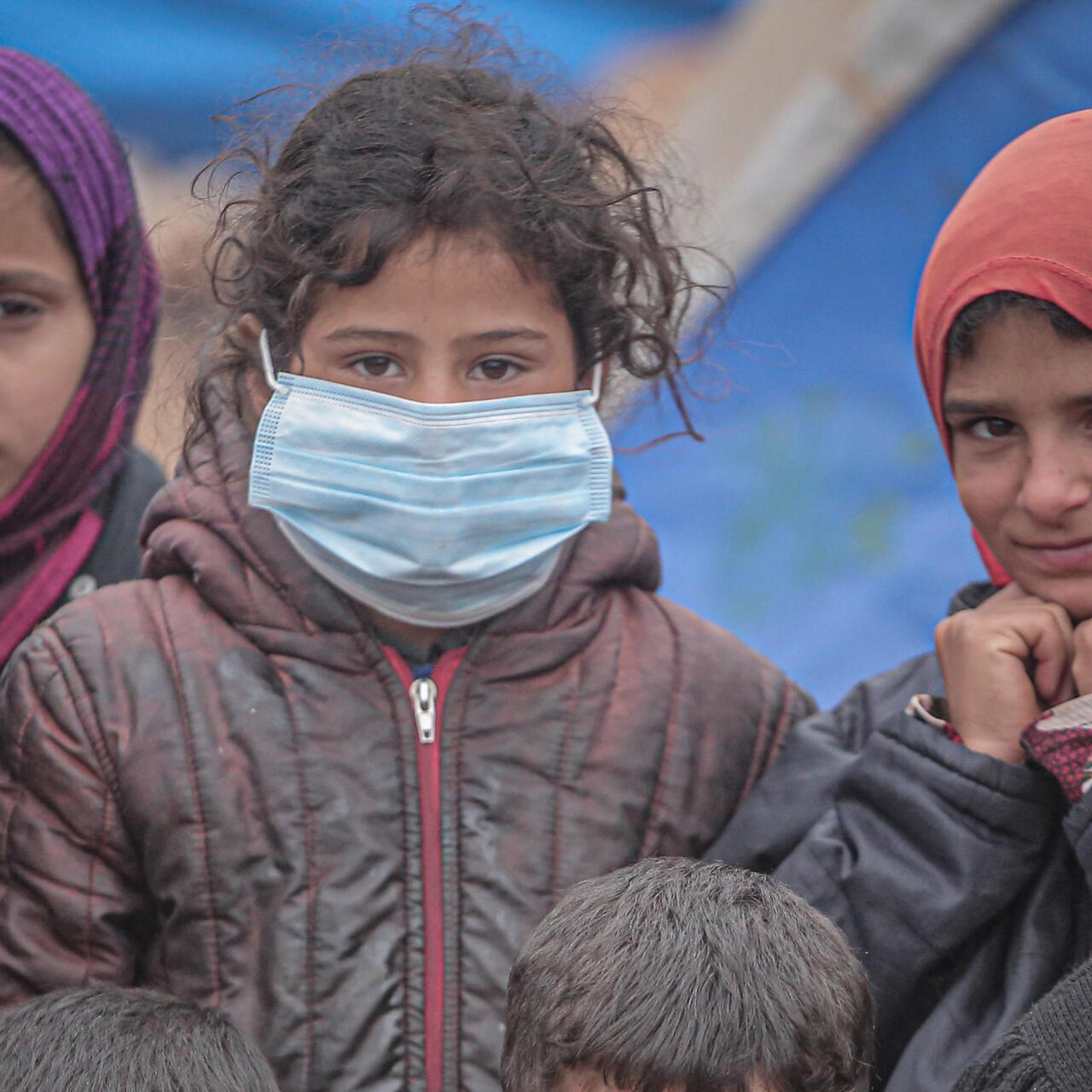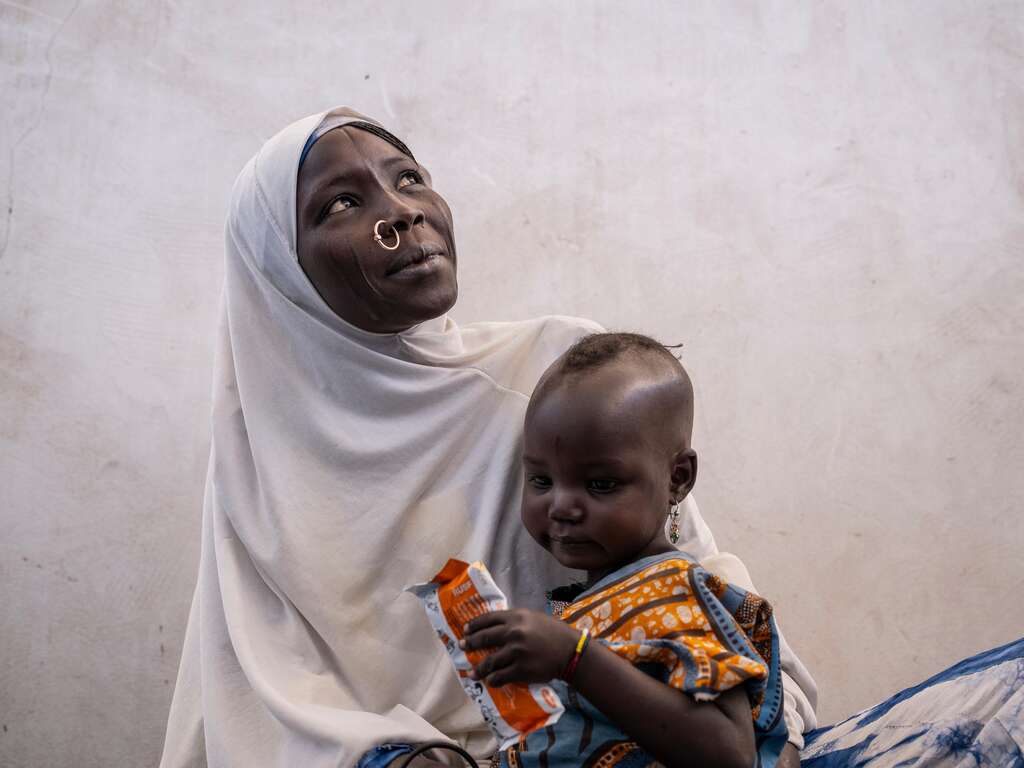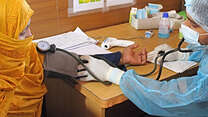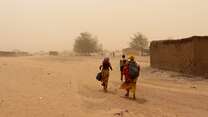
The coronavirus pandemic has overwhelmed even countries with advanced health care systems. But while Europe and the United States face shortages of ventilators, intensive care units (ICUs) and protective equipment, many countries affected by conflict and crisis have virtually none to begin with.
Lack of medical supplies is not the only challenge. Countries in crisis such as Syria, Yemen and South Sudan face a "double emergency" as COVID-19's health effects are coupled with escalations in conflict and political and economic instability provoked by the outbreak.
While many conflict zones have not yet felt the full force of the coronavirus, the short window of time we have to act is rapidly closing. Here are five fragile states that could be devastated by COVID-19 if we don’t take immediate action.
Syria
The spread of the coronavirus in Syria could lead to one of the most severe outbreaks in the world. Nine years of conflict have left Syria's health care system in ruins, with 85 health facilities attacked in the north of the country just last year alone. In the northwest, where fighting recently led to the largest displacement of civilians of the entire war, there are just 105 ICU beds and 30 adult ventilators for a population of 1.5 million. Nearly all are already in use.
A lack of food, clean water and exposure to cold weather has already left hundreds of thousands of people in poor health, making them even more vulnerable to a disease that can spread as quickly as COVID-19.
"A lack of food, clean water and exposure to cold weather has already left hundreds of thousands of people in poor health, making them even more vulnerable to a disease that can spread as quickly as COVID-19," says Misty Buswell, Middle East regional policy and advocacy director for the International Rescue Commitee (IRC).
Yemen
After five years of war, Yemen is currently in the midst of the world’s largest humanitarian crisis. Only half of Yemen's hospitals are fully functional and 18 million people do not have access to proper hygiene, water and sanitation.
If we fail to contain the virus in Yemen, we risk inestimable civilian suffering.
While a cessation of violence is desperately needed, the fighting continues; parties agreed to a ceasefire to scale up the COVID-19 response, only to violate it two days later. The IRC's Yemen country director, Tamuna Sabadze, recently laid out the stakes, saying, "If we fail to contain the virus in Yemen, we risk inestimable civilian suffering."
Venezuela
Hunger, instability and violence have led over 4.7 million people to leave Venezuela since 2014—among them, half the country's doctors. Ninety percent of Venezuelan hospitals lack critical supplies, and there are only 84 ICU beds for a population of 32 million.
Inside of Venezuela, the situation is dire.
"Inside of Venezuela, the situation is dire," says Marianne Menjivar, the IRC's country director for Venezuela and Colombia. With borders now closed to Colombia, further economic turmoil threatens the lives of millions of Venezuelans.
South Sudan
"The people of South Sudan have already endured six years of terrible war, famine and a collapsed economy," says Caroline Sekyewa, South Sudan country director for the IRC. Less than half of the country's health facilities are fully functioning, and many in operation are poorly equipped and understaffed.
The people of South Sudan have already endured six years of terrible war, famine and a collapsed economy.
With a population of 10.9 million people, the country has only four ventilators and 24 ICU beds. Disruption of lifesaving humanitarian programs by COVID-19 could lead to famine in South Sudan and other countries with high levels of malnutrition.
Burkina Faso
The West African nation of Burkina Faso has only 11 ventilators for its population of 20.9 million people. Violence and conflict have forced almost half a million to flee their homes even as armed groups continue to consolidate their presence across swathes of the country.
The major increase Burkina Faso has seen in attacks by armed groups over the past year compounds the difficulty of mitigating the spread of a disease in an active conflict area...
"The major increase Burkina Faso has seen in attacks by armed groups over the past year compounds the difficulty of mitigating the spread of a disease in an active conflict area, as we've seen with Ebola in the Democratic Republic of Congo," says Bob Kitchen, IRC vice president of emergencies and humanitarian action.
What must be done
New analysis by the IRC of the potential impact of the coronavirus in crisis zones paints a dire picture. "The scale, severity and speed of the COVID-19 outbreak will be magnified in fragile countries," says IRC president and CEO David Miliband of the report's findings. "The double crisis needs a double response."
In an Apr. 9 statement, Miliband highlights two key lessons from the pandemic along with urgent next steps:
- First, immediate activity to prevent the spread of the disease is imperative. Without handwashing facilities, the disease takes root—and without effective triaging of people it runs rife.
- Second, the weakest links in the global health chain are a threat to health everywhere. We must strengthen prevention efforts in war-torn countries and ensure refugees and other vulnerable people are not left behind.
"Should we fail," Miliband says, "not only will the most vulnerable pay the price today for the inaction of the international community, the consequences will be felt across the globe for years, if not decades, to come."
What the IRC is doing to help
The International Rescue Committee is working across three key areas: to mitigate and respond to the spread of coronavirus within vulnerable communities, protect IRC staff, and ensure the continuation of our lifesaving programming as much as possible in more than 40 countries worldwide, including the United States. Read about our coronavirus response.
How you can help
Please make an immediate donation to help us maintain our lifesaving programmes while ramping up our coronavirus preparedness and response efforts. Donate now.




